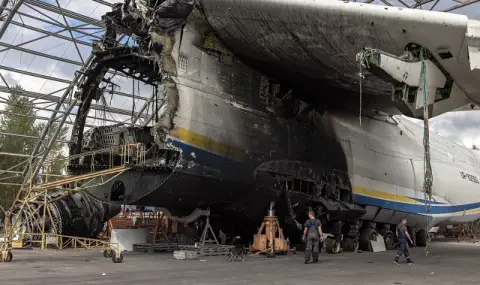Neither Russia nor Ukraine has sufficient resources to achieve a decisive victory on the battlefield. But despite the heavy losses they will suffer, a peace deal at this stage seems even more unlikely due to the "ultimate demands" on both sides, writes the American Foreign Affairs.
After more than two years of fighting, the Russian invasion of Ukraine has reached a bloody stalemate. Both countries continue to spend significant resources on gaining territory, but their progress is marginal and dangerous. Sometimes they quickly retreat. Neither side has the resources to achieve a decisive victory on the battlefield. Both sides are suffering heavy losses every day.
Scientists typically describe such situations as "mutually damaging impasses" and they often favor the terms that make the parties negotiate. If belligerents lack the means to alter the trajectory of hostilities, they often reconsider how much they can achieve by force. And if they are faced with an increasingly expensive and endless impasse, they begin to consider previously unacceptable concessions.
As a result, a space for negotiation may emerge that did not exist before.
Yet this war has not reached a stage where a negotiated end is even possible in principle. In order to make peace in a conflict, both sides must be willing to accept the minimum demands of the other side. And despite the mutual lack of progress, neither Russia nor Ukraine can swallow the other's demands. Kiev, for example, cannot accept Russia's demand for a new leadership. Moscow cannot agree to Ukraine's demand for reparations. Both sides will not give up the territory.
No "inventive diplomacy" cannot change these facts. For both sides, continuing the fight remains preferable to reaching an agreement. And unless there is a drastic change on the battlefield or in either government, it is highly unlikely that the two sides will revise their demands in the long term.
"Fighting against everything may be rational for the participants if the consequences of ending the conflict seem worse than its continuation," Foreign Affairs writes, adding that a separate issue is confidence in a potential peace agreement.
The authors of the publication note that Russia has not yet given up its "extreme" demands that consist in the actual destruction of Ukrainian sovereignty – transfer of territories, change of government and liquidation of the army.
Ukraine simply cannot agree to such terms, so the Kremlin's public statements of readiness for negotiations, according to Foreign Affairs, are simply "theater" designed to show Moscow in a favorable light and undermine international support for Ukraine.
Mission Impossible! The Kremlin's extreme demands and Kiev's desire to survive make negotiations unlikely
Both countries continue to spend significant resources on gaining territory, but their progress is marginal and dangerous
Apr 1, 2024 19:41 59
